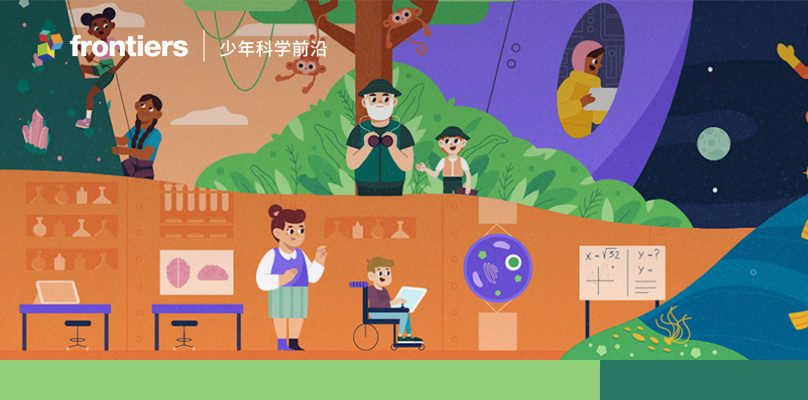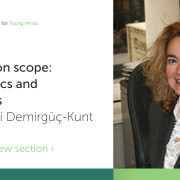- Science News
- Young Minds
- Frontiers for Young Minds: Chinese speakers are the latest audience to access high-quality science for kids
Frontiers for Young Minds: Chinese speakers are the latest audience to access high-quality science for kids

Photo credit: Frontiers
Chinese speakers can now access a growing catalog of Frontiers for Young Minds scientific resources as part of the journal’s expansion into new languages.
The launch in China is part of a wider strategy to bring high-quality, understandable science to kids, teens, teachers, and the public globally. Five articles written by Nobel Prize laureates will be featured in the first Chinese-version launch, with more content coming in September.
Frontiers for Young Minds is an award-winning, non-profit, open-access scientific journal for kids. Leading scientific authors re-write their previously peer-reviewed published articles to be accessible to young readers, and then young reviewers aged 8-15 review them to be engaging for their peers, before the new articles are widely disseminated online. Its broad subject areas of publishing cover the whole of STEM: Astronomy and Physics, Biodiversity, Chemistry and Materials, Earth Sciences, Human Health, Mathematics, Neuroscience and Psychology, Engineering and Technology. Frontiers for Young Minds’ mission is to inspire and engage the next generation of scientists and citizens by publishing fun-to-read science that is globally accessible to all.
Hundreds of articles are already available in Hebrew and Arabic, with French coming later in 2023 and plans underway for Spanish, Portuguese, and Hindi.
Laura Henderson, Head of Public Outreach at Frontiers for Young Minds said: “We’re very excited to expand our journal into a key new language demographic, giving millions more kids the chance to build their scientific literacy for life – and we’re not stopping here! We have many more languages we’d like to target, with support from funding partners. We’re also running a new pilot for educational resources, supporting teachers to use our top science articles in their classrooms – we are constantly innovating as we become a leading global open-education resource.”
Diane Wang, Frontiers General Manager China said: _“_As one of Frontiers' most unique journals, Frontiers for Young Minds has brought scientific enlightenment to countless young minds. To our knowledge, there are already many loyal readers of the English version of Frontiers for Young Minds in China, and some schools have even incorporated its content into their teaching materials. With the launch of the Chinese version, we will also organize creative activities for young minds in China, to bring the great content of this journal to all the curious minds out there.”
All research published in Frontiers for Young Minds is based on evidence-based scientific research and has seen considerable success to date. Since its launch in 2013, the journal has received published articles from over 3,400 authors which have been reviewed by over 6,500 young reviewers from 65 countries worldwide.
ENDS
Notes to editors:
Visit the Frontiers for Young Minds China website kids.frontiersin.org/zh/
About Frontiers for Young Minds
Launched in 2013, Frontiers for Young Minds is the only open-access journal edited by young people aged 8-15. Alongside their science mentors, the young reviewers ensure the published final articles are accessible and engaging to a younger audience. With 1150+ original articles published in English, the journal has achieved over 35 million views and downloads from 230 countries worldwide.
About Frontiers
Frontiers is the 3rd most-cited and 6th largest research publisher. We publish groundbreaking discoveries by the world’s top experts. Scientists empower society and our mission is to accelerate scientific discovery by making science open. We place the researcher at the center of everything we do and enable the research community to develop the solutions we need to live healthy lives on a healthy planet. Featuring custom-built technology, artificial intelligence, and rigorous quality standards, our research articles have been viewed more than 2.4 billion times, reflecting the power of research that is open for all.








